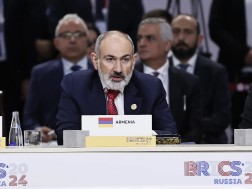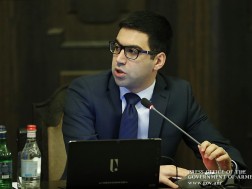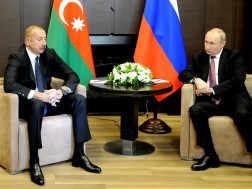Contributing to establishing a lasting peace and stability in the South Caucasus is a top priority for Armenia, which highlights the importance of lifting the blockade on infrastructure in the region. Armenian Prime Minister Nikol Pashinyan made these remarks in an interview with the Greek publication Kathimerini.
According to Pashinyan, the "Crossroad of Peace" project developed by the Armenian government includes, among other things, a significant increase in capacity for transporting goods, vehicles, pipelines for electricity transmission, and internet cables between the Black Sea on one side and the Persian Gulf and the Gulf of Oman on the other, passing through Armenian territory.
"The project also involves establishing a railway connection between the mentioned endpoints, which is possible in the event of normalization of Armenian-Azerbaijani relations. It is worth remembering that the optimal railway route from Georgia to Armenia and further to the Islamic Republic of Iran passes through Nakhchivan and has existed since the Soviet era. This is the north-south direction of the 'Crossroad of Peace.'
There is also an east-west direction that can connect the Caspian Sea to the Mediterranean Sea, as well as Turkish Black Sea ports through Armenian territory. For this purpose, roads, railways, pipelines, power lines, and cables must pass from Azerbaijan through Armenia to Turkey. And we are ready to provide such solutions," stated Pashinyan.
To ensure the functioning of all these infrastructures, Armenia, as noted by Pashinyan, puts forward universally accepted principles, which include:
a) all infrastructures are under the sovereignty and jurisdiction of the countries through which they pass;
b) each country carries out border and customs control on its territory through its state institutions and takes necessary measures for its security;
c) the designated infrastructure can be used for both international and domestic transportation;
d) finally, all countries utilize the infrastructure for freight transport.
Earlier, BMG reported that in late October 2023, Armenia presented the "Crossroads of Peace" project, which essentially is the Armenian version of a project aimed at unlocking communications in the region after the 44-day war. From Yerevan's point of view, this is one of the components of the process of establishing a durable peace in the South Caucasus, and if implemented, it could change Armenia's status, helping it to emerge from isolation and become a logistical hub in the region.
















